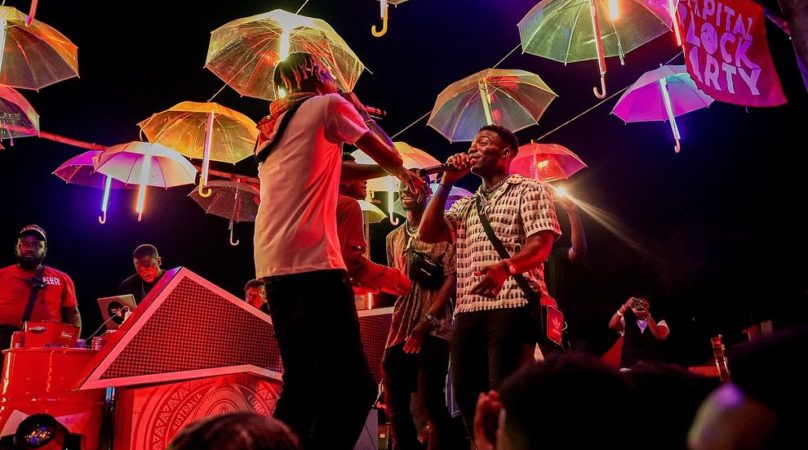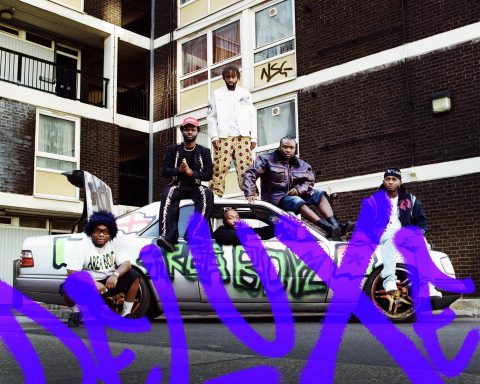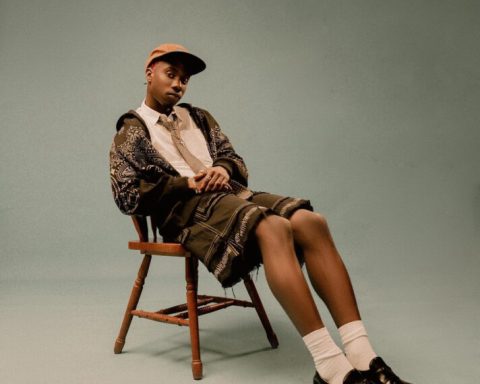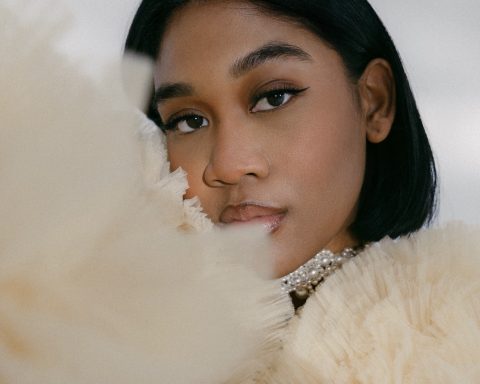Since its inception, popular music has existed in a constant state of development. It’s a tale as old as time itself; comfortably characterized by the partition of the rock genre into alternative rock, punk rock and metal in the 90s, or the births of disco, funk and neo-soul, as sub-genres of R&B. Nevertheless, rap in its comparatively short lifespan as a genre has arguably witnessed more changes than its contemporary counterparts. With its ‘present-day existence as an ever-morphing expression of black ingenuity’, rap’s seemingly limitless expansion over the years is a product of the ever-evolving culture phases in black societies.
From the birth of gangsta rap in the early 90s to the popularization of dirty south and crunk music in the late 90s, to the commercialization of ‘snap music’ in the early 2000s; the evolution of rap music has indeed seen various phases. As a result of said evolution, trap music was born. Originated in the Southern United States by Lil Jon, DJ Paul and Ghetto Mafia in the late 90s, and expanded in the early 2010s by Chief Keef, Young Jeezy and Future, trap music steadily gained momentum as the new wave of rap music.
African music while being majorly indigenous, certainly embraces influences from western sounds and this is evident in African hip hop culture. To this end, African rap music has followed suit in the evolution of its western counterpart and espoused the new wave that is trap music. Nigeria as the continent’s media hub has definitely bought into this phenomenon – or at least attempted to. Nigeria had always rendered a lukewarm reception pertaining to local efforts at the rap genre – the generality of music fans had seemingly failed to fully grasp and enjoy it.
Nevertheless, this didn’t stop artists from taking a stab at the genre, tirelessly attempting to cultivate an organic fanbase. Such attempts kick-started the careers of rappers like Ycee, M.I Abaga, and Olamide and Phyno – the luminaries who found a way to make indigenous rap work. In this light, with trap being the new wave of rap music, Nigerian artists have also made attempts to craft their versions of the wave. Still, this was met with minor success, resulting in said artists turning to the more mainstream Afro-Pop genre. Songs like Terry Apala’s ‘Champagne Showers’ serves as a noteworthy endeavour at the genre but still never attained the success level on par with its Afrobeat counterparts – until now.

Trap music in Nigeria is steadily gaining momentum and the new generation are at the forefront, leading the wave. While the older generation’s efforts have seemingly proved futile, the younger crop of talent has grabbed the bull by its horns and taken the trap scene by storm. For a lot of Nigerian youth, trap music represents an escape; a form of preservation of sanity they turn to as they attempt to get through the prevalent mental struggles faced daily. Hence, the importance of being able to create or access trap music that wholly represents the everyday tussle and emotional angst of an average Nigerian youth, cannot be over-emphasised.
Spearheading this movement is Rema, 2019’s breakout teenage sensation whose expansive interpretation of emo-rap fused with Afrobeat elements rapidly accrued him millions of fans globally. Seemingly popping out of nowhere, his music soon crossed the borders of Africa; breaking into the highly coveted market that is the Western shores. While this feat can be partly owed to backing from the powerhouse that is Mavins Records, it would be distasteful to completely rule out his irrefutable talent and overall ingenuity as a major reason for this accomplishment.
‘Trap music helps me convey my emotions in a different way’, the 19-year-old Benin native tells Okay Africa in a 2019 interview. With influences from critically acclaimed names in the emo-rap sub-genre – such as Swae Lee, Trippie Redd and JuiceWRLD – evident in his music, Rema creates unorthodox sounds depicting modern-day teen angst and his admitted ‘passion to save the youths through his music’.
Rema’s end goal is to ‘take the youths to a new level, showing them a fresh vision, showing them a new world.’ With standout tracks like ‘Why’, ‘Trap Out the Submarine’ and the sonically impressive ‘Spaceship Jocelyn’, the 19-year-old is undoubtedly well on his way.
Regardless of Rema’s current title as the de facto leader of the new generation of creatives looking for expression and change in the arts, there were many others before him. Alpha P, his former bandmate, is one of such talents. Being manufactured in the same factory, his understandably obvious similarity to Rema has proven to be a sort of thorn in his side as he is constantly compared to the Afrobeat star, gaining him the nickname ‘Rema 2.0.’ Nevertheless, this does nothing to negate his talent. Much like the Mavins golden child, Alpha P produces music coloured with trap cadences, depicting themes on love, heartbreak and youthful anxieties.
Braggadocio is a running theme in rap music; every rapper alludes to their level of skill by implying the incompetency of others. Straffitti, a Lagos based trap artist, commonly implements this element, spitting bars in the same debauched confidence as Future and Kanye. The rapper’s experimental vision for Nigerian Hip-hop is manifested in his music, a seamless blend of trap tempos, mainstream rap and indigenous rap styles. Despite the palpable trap rhythms written all over his music, Straff’s obnoxious aesthetic screams more 2012 Tyler, the Creator than Young Thug. While his 2017 debut project, Vanilla Sky, portrayed Straff as a promising artist needing to work on reaching a final form, his latest offering, an energetic and rage-inciting ‘Kuronbe’ depicts obvious growth in the rapper’s sound. The obnoxious musical personality he started out with is still present; it’s just more refined and convincing.
His music collective, Thirsty Worldwide, is a creative clinic boasting of fellow like-minded unorthodox Lagos based trap artists like Blue7lame and Jaiye, as well as graphic designers, photographers, producers, illustrators and videographers. Thirsty’s signature non-conforming aesthetic while highly reminiscent of the now separated Odd Future, denotes exactly what it means to be a Nigerian youth today – alternative in their perspectives and provocative in their fashion and music tastes. Much like Tyler, Straff serves as a torchbearer, holding it down for the indigenous trap acts in Nigeria, inspiring the youth to express themselves as creatively as possible.
Elsewhere in the motherland, acts like PsychoYP and Zilla Oaks are making their mark. Proudly representing the state’s capital, these two frontrunners of the music collective, Apex Village have actively earned Abuja a seat at the table of the Nigerian trap scene. Frontman, Psycho YP, established the collective following the success of his 2018 debut YPSZN. While still basking in the success of the project, the thought of building a community dawned on him. ‘I was getting a lot of clout and all these things, getting a million streams on Apple Music. I just felt like there was a lot of attention on me and all my other friends had their own things going on that I felt the world needed to experience’, he tells Culture Custodian in a 2019 interview. Hence, the inception of Apex Village, a collective featuring artists ranging across multiple art forms. In this same Davido-inspired principle of ‘rising by lifting others’, YP made a conscious effort to ensure they understood the process of profiting from their art, to avoid exploitation from higher powers.
The change accompanied by this new-found knowledge is evident in the artists. Their first offering as a collective, Welcome To the Ville, is an obvious elevation from any of their individual work, with clean-cut delivery of ice-cold verses over head-bopping beats. Following the support attained from this debut, members of the Trap group have ventured on to release notable individual bodies of work, including Ayüü’s Ayüüniverse, YP’s follow up project YPSZN2, as well as Zilla’s recent bar-heavy collab with Dremo & Prettyboy-DO, ‘Ogini’. Hence, further bolstering their place as forerunners in the Nigerian trap scene.
Exterior to the continent’s shores, young diasporan acts are telling their distinctly Nigerian stories, fusing in western influences through the trap sound. Traplanta, the Atlanta based trap music group, is one of such acts. Similar to the likes of A$AP Mob, Traplanta has defined themselves as a lifestyle collective; bragging of talented rappers KA$H, Folabi Xan & OBA. While predominantly recognized as a collective, the boys still retain their individuality; each with a different approach to rap as is evident on their solo projects. KA$H’s dexterous storytelling is taken to impressive heights on his sophomore tape, Reborn while recently solo member, dndSection’s signature beguiling hooks aren’t lacking on his debut solo project, Love Lies Bleeding. Perhaps the most invigorating feature of the collective lies in the form of rapper Folabi Xan; the mystery man who often tends to shy away from the limelight. Xanny’s approach to rap is similar to Blueface in that rap-off-the-beat style – only much more convincing. Despite his solo discography being fairly sparse, he certainly offers the most intriguing yet memorable verses on the group’s collaborative efforts; spitting verses (and boy, does he spit) in such an eccentric manner it’s almost hypnotic, following every word.
Across the pond and on the soil of our colonizers, UK based creative collective No Politics Mob are equally pulling their weight on the scene. Characterised by their signature psychedelic soundscapes, the group consists of rappers New World Ray, Ade T and Maison2500, implementing said murky tones in their rap showings. While Ray could have been deemed the de facto leader of the group as he was certainly the most visible, Maison’s trajectory in 2019 stands to debunk this notion. Although the rapper’s ability to incite rage-filled moshpits grants him more Playboi Carti and Travis Scott leanings, his overall punk aesthetic, weaving between the cute, the odd and the angry, screams more Lil Uzi Vert. With the release of his game-changing 2019 sophomore project, Maseworld, a true cultural reset for the trap scene, Maison transcended into a god-like status similar to that of Playboi Carti; amassing a cult-like following of ardent fans. And without a doubt, co-signs from alté leaders, Odunsi and Santi certainly helped in this movement. Elsewhere in the UK is trap artist, Lörd Isaac, whose efforts like ‘Milli’ and ‘Main Guy’ have proven him an excellent craftsman in the trap sound.
Among all elements, trap music is most distinctly characterised by its sound; punctuated with hi-hat flutter riffs, thumping 808s and synths and bass-heavy drops. In this light, it would be obscene in the documentation of this movement to disregard the originators and consequently the backbone of the trap sound – the producers. Needless to say, the Nigerian trap scene undoubtedly boasts an ample crop of young talent in the production aspect, both home and abroad, each distinctive in their style. From prominent names like Genio, GMK and Higo, to more underground producers like Awful Daniel, +gray+, Tochi Bedford and Silla the Alchemist.
Given that the Nigerian trap scene is still an emerging bubble in comparison to its more mainstream counterparts, it’s imperative for the provision of adequate platforms for these rising artists to showcase their talents and express themselves. The NATIVE Magazine’s annual festival, NATIVELAND, serves as the ideal epitome of such a platform. Bridging the gap between diasporan and indigenous acts, NATIVELAND provides an atmosphere for budding and prominent talents alike to deliver exclusive experiences to fans. Lucid Lemons, a platform solely focused on showcasing Nigerian creative also provides similar spaces, exemplified in their annual Lemon Curd festival and weekly open mic event, Lucid Nights. And for the moshpit fanatics, Thirsty Worldwide’s Thirstynalia and Wolfing Thunder offer spaces for the underground indigenous trap acts to wild out at a rage-filled fest.
While the steady growth of the Nigerian trap sound over the last four years is undeniably impressive, there’s certainly a conversation to be had about the efficacy of rap as a mainstream genre in the long run. Granted that the older generation has seemingly abandoned any efforts at the genre, opting for the ‘easy way out’ that is the Afro-Pop genus, it’s certainly up to the new generation to change that narrative, ensuring rap is viewed as an essential genre of music and remind people that great Hip-Hop can come from our country. Moving forward, it would be crucial to see more women in the trap scene. Globally, female rappers are on the steady rise, boldly dabbling in all aspects of the genre and doing it better than most of their male counterparts, hence it would be invigorating to see more Nigerian women voicing their lived experiences through the trap sound.









[…] Read more: Evolution of the Nigerian Trap Scene: How the New Generation is Reshaping the Movement […]
[…] 2020, we documented the growth and evolution of the Nigerian trap scene and how a new generation was fuelling this paradigm shift. Like Hip-hop, Trap is yet to be […]
[…] Also Read: Evolution of the Nigerian Trap Scene: How the New Generation is Reshaping the Movement […]
[…] project, laying a memorable verse. Before the feature he’s been staking his claim in Nigeria’s growing trap scene, Sosa-E has been sharping up his skills with multiple freestyles which he usually drops through his […]
[…] a boundary, but a lot of areas where two different sounds can intertwine and birth new magic. The trap music scene is at the forefront of this fairly new development. This dark cousin of hip-hop is densely […]
[…] The Nigerian trap scene, while still an emerging bubble, is certainly expanding daily; with new artists on the rise boldly dabbling in the genre. Needless to say, gratitude is owed to the new generation of Nigerian youth for this feat. Among these acts is multi-genre recording artist and record producer, Majik; a new kid on the block whose distinctive sound is set to propel him to the forefront of the scene, it’s just a matter of time. […]